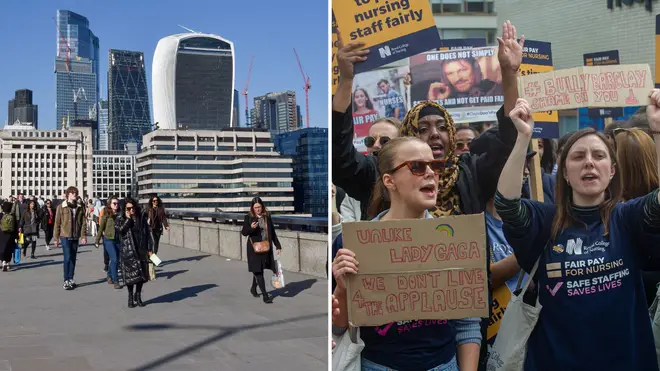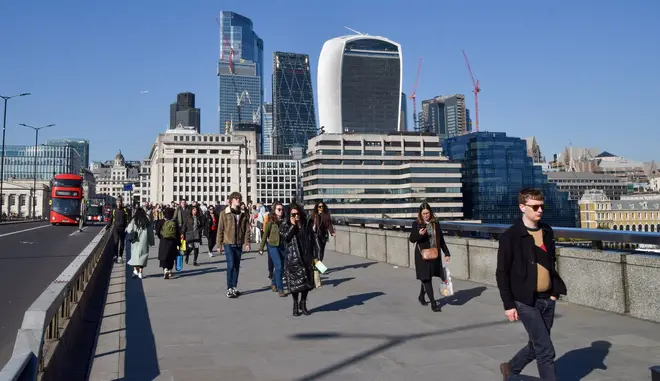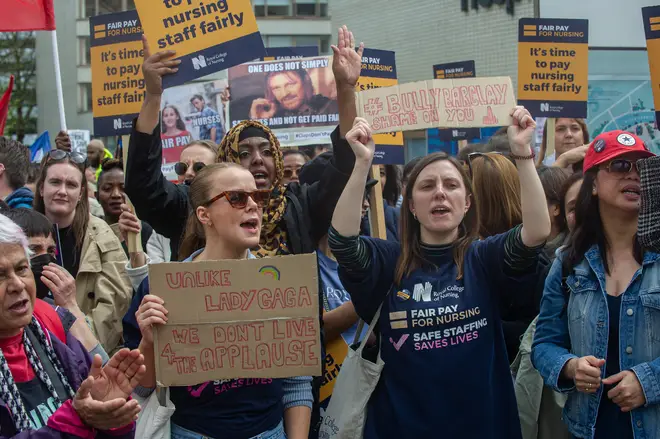
Simon Marks 3pm - 7pm
12 May 2023, 07:49 | Updated: 12 May 2023, 08:40

The British economy grew marginally in the first quarter of the year, data released on Friday shows – helping to ease fears of a possible recession.
Gross domestic product increased by 0.1% between January and March, though there was a 0.3% decline in the latter.
That was caused by falls in the retail and wholesale sector, while strikes hit the healthcare sector.
February was flat but January saw a rise of 0.5%.
Chancellor of the Exchequer Jeremy Hunt said: "It's good news that the economy is growing but to reach the Government's growth priority we need to stay focused on competitive taxes, labour supply and productivity.
"The Bank of England Governor confirmed yesterday that the Budget has made an important start but we will keep going until the job is done and we have the high wage, high growth economy we need."

Labour's shadow chancellor Rachel Reeves said the result was a more of the "dismal low growth" seen under the Tories.
"Labour wants to match the ambition of the British people – while the Tories would rather continue down a path of managed decline of low growth and high taxes," she said.
"Today is another day in the dismal low growth record book of this Conservative government."
Retail and other consumer-facing services were down 0.8% in March compared to the same month last year, with shoppers squeezed by inflation and the cost of living crisis.
Darren Morgan, the director of economic statistics at the Office for National Statistics (ONS), said as the data was released: "Despite the UK economy contracting in March, GDP grew a little over the first quarter as a whole.
"The fall in March was driven by widespread decreases across the services sector.

"Despite the launch of new number plates, cars sales were low by historic standards - continuing the trend seen since the start of the pandemic - with warehousing, distribution and retail also having a poor month."
It comes a day after the Bank of England hiked interest rates to to 4.5% - the 12th increase in a row.
Rates are now at their highest level for 15 years, since the global financial crisis in 2008, after seven out of nine members of the Bank's monetary policy committee (MPC) voted for the 0.25 percentage point increase.
But the Bank no longer expects the UK to fall into recession this year and it has upgraded its predictions about economic growth.
It expects GDP to rise by 0.25% this year and 0.75% next year and the year after.
A technical recession is defined as when the economy contracts for two consecutive quarters.